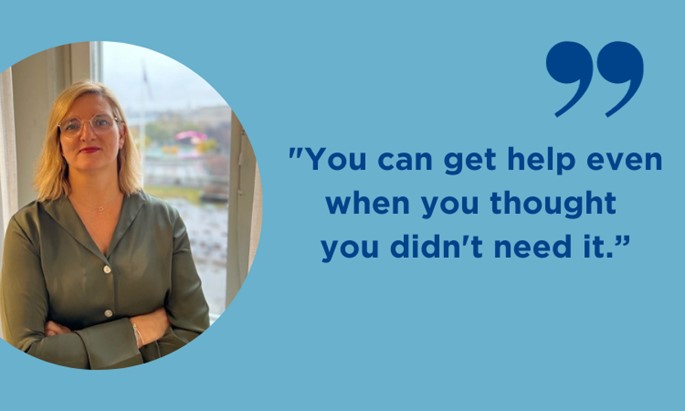Working in different countries wasn't Dina's sole decision; she followed her husband. During her time in the UK, she worked as a news radio broadcaster for the BBC World Service. However, it was in Singapore that her career took off as a compliance officer in finance, which matched her previous legal studies. In Brazil, her focus was on financial crime compliance, which remains her specialty at Nordea today.

- Sweden was far behind in terms of financial crime when I arrived here. In 2017 we were still discussing how to implement AML regulations that were in place in other countries for at least 10 years already. Financial crime compliance in Sweden was still quite immature.
What were the major challenges when starting to work in Sweden?
- It took me a while to adapt to Swedish culture. I quickly understood that all decisions had to be taken by consensus and that colleagues did not like any type of confrontation. Not knowing the language has also been a bit of a handicap. It's easy to feel left out.
What's important to consider when starting to work in Sweden?
- Try to learn some Swedish and remember to never say no to a "fika" (coffee break). For me, LinkedIn has also been a great help in finding jobs and expanding my network. That's how I found my job at Nordea which, in my experience has a good environment for international employees. I've also joined several Facebook groups to get tips and advice on working in Sweden and to find friends in similar situations.
How did you get in touch with Finansförbundet, and what has the union meant to you?
- During my research before moving to Sweden, it was mentioned in several sources that joining the union and the unemployment fund was very important, and that’s what I did. But for several years, I had no contact with the union. I received the member magazine Finansliv, but it was in Swedish, so I mostly looked at the pictures. My first contact with Finansförbundet was two years ago. In a salary review, I was told by my manager that they could not offer a raise due to lower-earning colleagues, even if my performance was satisfactory. I was not very informed regarding labour agreements and thought it was just the way things worked here.
However, the union contacted me, asserting that I could not have a zero increase if the performance was satisfactory. They helped me get a raise without me asking for help. Since then, I've engaged in discussions on best practices and salary statistics for different roles. The union effectively explains employer responsibilities and working hour regulations. Today, I maintain a strong relationship with the union.
Why is it important for the union to be present at work?
- You simply have to join the union and the unemployment fund. A lot of important labour rules are in the collective agreements and the unions can provide great support. You can get help even when you thought you didn't need it.


